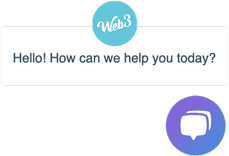Are you tossing up between Wix and WordPress for building your website? Whether you want a platform that’s easy to use, has exceptional support or has an inbuilt SEO tool, we’ll cover which is best for you for every aspect of your business and website journey.
Wix is a website builder. WordPress is a content management system. Although Wix and WordPress are different, they have a lot of similarities. It can be confusing to know which one to choose and, more importantly, why?
In a head-to-head comparison, we discuss the pros and cons of Wix vs. WordPress and the factors contributing to their successes.
These include:
- Design & Ease of use
- Support
- Plugins, Add ons and Extras
- SEO
- Blogging
- Ecommerce
- Cost & Hosting
- Summary
- Listen In
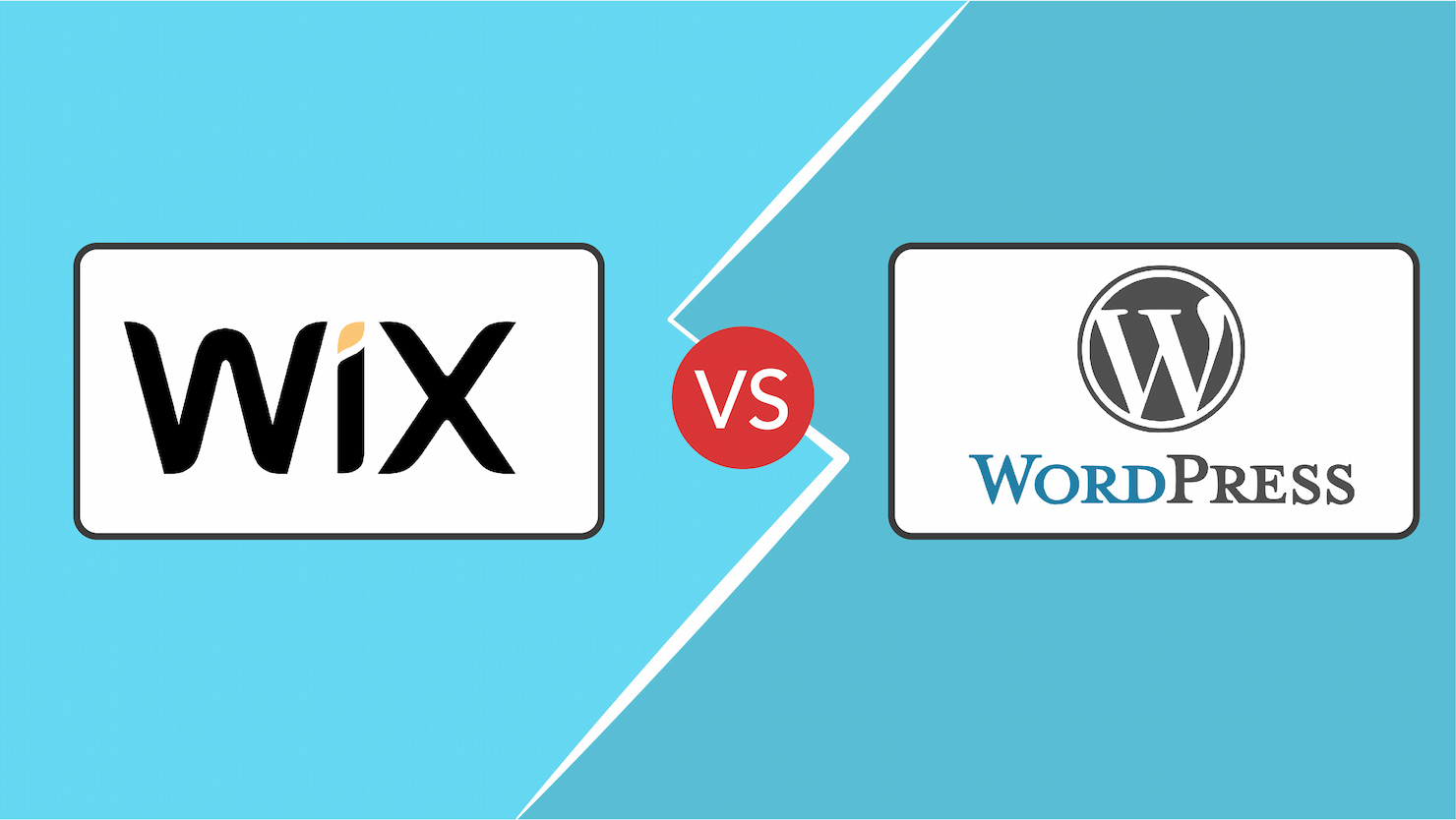
Design & Ease of use
Do you want to create a website that looks effortlessly professional? First impressions are the most important, let’s find out which will help to achieve that for you.
Wix
Wix is known to be the best platform for small businesses or people who are just starting. You don’t need any previous knowledge of HTML, plugins, or any of the daunting technical terms. This beginner-friendly software has features that can turn any idea into a professional and creative-looking website.
They offer over 500 free designer-made templates to effortlessly create a professional site. These are broken into categories of business to help you even more.
These categories are, for example, blogs, photography, portfolio, restaurants, etc. Their features include a simple drag and drop interface for flexibility of inclusions like buttons, tabs, pictures, paragraphs, and much more. It is so easy to use that you have the freedom to design whatever you want!
A new feature they’ve released is Wix ADI. It provides simple questions to answer that instantly generate a custom-made design for your business. Just like that!
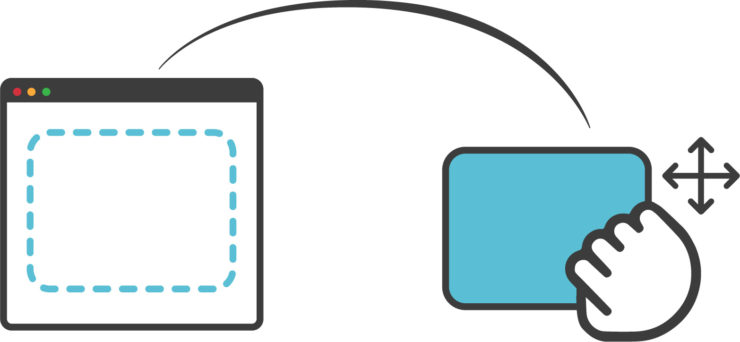
WordPress
WordPress has a block editor allowing you to easily edit your pages by adding different blocks for images, text, background, and other features. You have access to thousands of different themes and templates to launch your website and customise as you go.
WordPress looks to be the more professional software, but also the more daunting. However, this is not the case. You can preview your live website with one click, which lets you view what your customers will see. As well as Wix, they do offer drag and drop usability, although it’s not as user-friendly. However, this hasn’t impacted its ease of use in other aspects.
Despite popular belief, the ability to code in WordPress is not essential. WordPress, however, is incorporating features of HTML5 into the software, although these updates will not affect the ease of use.

Support
Wix
Wix provides constant customer support. Their help centre includes features like frequently asked questions, articles, how-tos, free video tutorials, over-the-phone support in a variety of languages, and email.
WordPress
WordPress offers a variety of resources to help you and your business get the most out of WordPress.
These include:
- Community-based support forums
- FAQ Troubleshooting
However, the support for WordPress is significantly lower than what Wix provides, which proves why Wix is more superior, particularly for beginners.

Plugins and extras
What exactly are plugins and extensions? Plugins, or apps, are third-party extras you can use on your websites to add more features. These are particularly important for your customers and are a crucial part of building your website.
Wix
With over 250 web apps, Wix allows you to build your website to integrate professional tools to sell your products and services online.
Some of their apps include:
- Contact forms
- Image gallery
- Social media buttons
- Email marketing
- Comments
- Much more!
WordPress
WordPress offers tens of thousands of free plugins from their directory with even more in their premium plans. I will spare you the endless list. But, it’s safe to say that if there is a feature you want to install, WordPress can make that happen.
Overall, Wix is expanding its inventory of apps. Until then, it is hard to go past WordPress’s endless plugin possibilities.
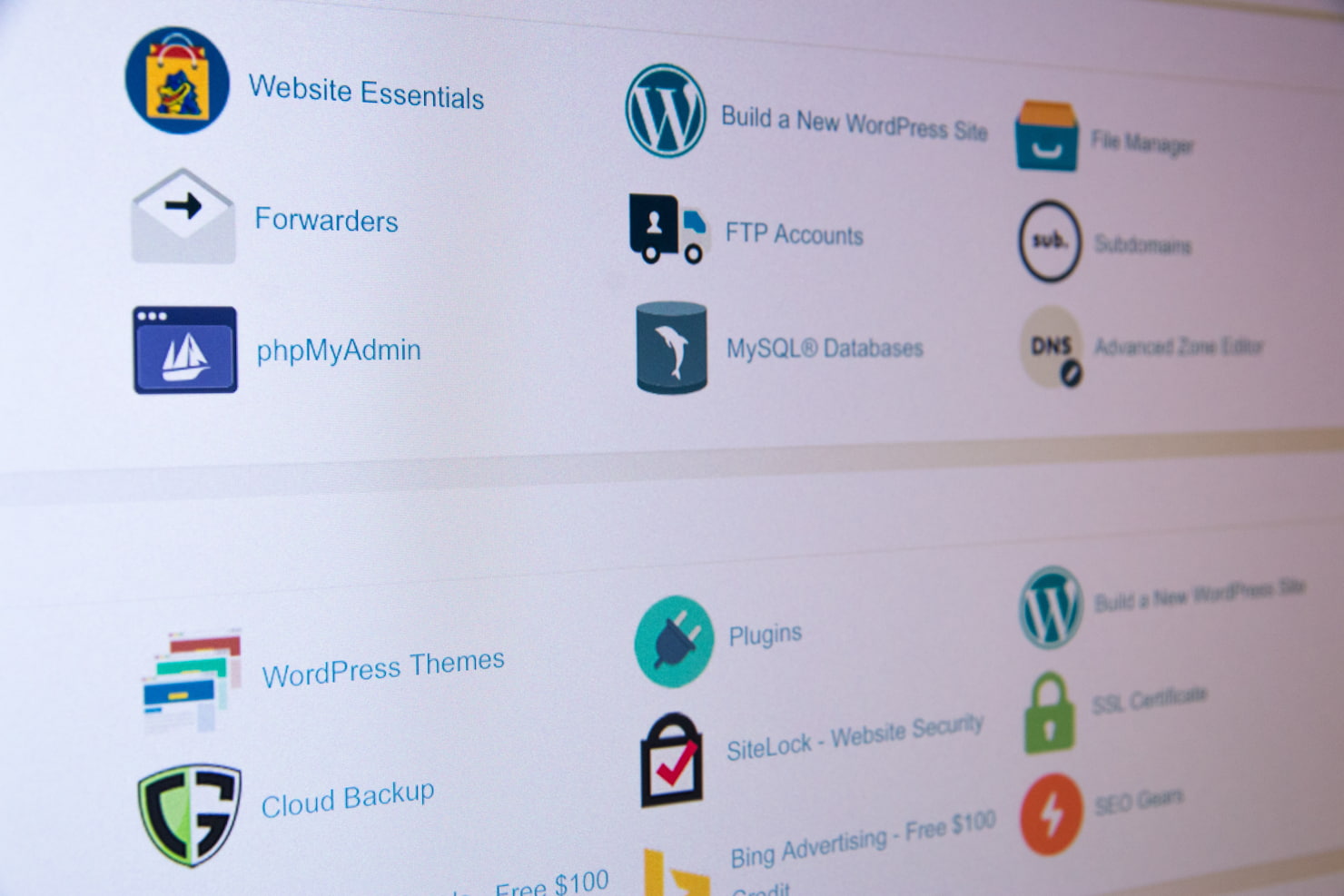
SEO
Why is SEO important for choosing a website development software? Search engine optimisation is essential for building an online presence for your business, searchability, and visibility. It helps to get clicks and organic traffic to your website. As well as increasing traffic, SEO also improves user experience through its optimisation layout and design.
WordPress
How does SEO work on WordPress, and how to enable it?
WordPress has access to tonnes of plugins that help to increase your SEO efforts. There are two main competitors for WordPress’s top SEO plugin, Yoast SEO and All in One SEO (AIOSEO).
WordPress has introduced Categories and Tags that organise your content in said categories, like a table of contents. It helps to manage your content by topic. Users can find what they need, and search engines understand the structure of your website.
Wix
Over the last couple of years, Wix has begun to catch up to WordPress for their SEO. Some free tools can boost your SEO on Wix, helping to drive organic traffic to your site. They are more of the underdog, as their biggest competition, WordPress, is known for SEO.
Wix SEO Wiz Features include:
- SEO analytics to improve your Google search ranking
- Visitor analytics for traffic insights
- Email marketing templates for your client base
- And a personalised SEO plan/checklist

Blogging
WordPress
WordPress has a long-held reputation, as it initially started as a blogging platform. This website builder now allows all the blogging features you would need.
These features include:
- the ability to add tags,
- categories and RSS,
- plugins for comments,
- related posts and poles.
In other words, the sky is the limit when it comes to blogging on WordPress. If you want to incorporate blogging into your business, we’d say WordPress is more superior to Wix.
Wix
As we mentioned about the drag and drop capabilities, Wix can easily add blog sections to your site. These contain all the basics you’d need, with few variations for formatting options.
If you are focussing on blogging for your business, you’re in luck. You can monetize your free Wix blog for your business. Wix allows different ways to generate income from your blog to help your business.
The only downside to Wix blogging is, unfortunately, the comments section. Wix is slower to use and may impact the usability of your customers. However, you can add apps for commenting such as Facebook to make up for this disadvantage.
Ecommerce
E-commerce is the process of buying or selling product and services online, which Wix and WordPress allow for. Using these platforms to build your site is the easiest way to get started, see your ROI increase, and build up your brand.
WordPress
So we know that WordPress was originally a blogging service, but can WordPress be used for eCommerce? WordPress is an eCommerce machine!
A big seller for WordPress is its WooCommerce plugin, which is the most used eCommerce platform in the world globally. It makes it super easy to create and maintain an online store as well as digital subscriptions. It offers flexibility and freedom to sell everything your business can create.
Wix
Wix has multiple payment methods, including credit cards, Paypal, Square, offline payment, and many more, all commission-free. They also offer their Wix Store dashboard to see the transactions as they occur.
One of the largest standouts for Wix is the ability to use their Tax Calculator, Avalar. It makes calculating your region’s tax rates as simple as clicking a button because that’s all it takes. These are prepared based on your business’s location for up-to-date calculations.
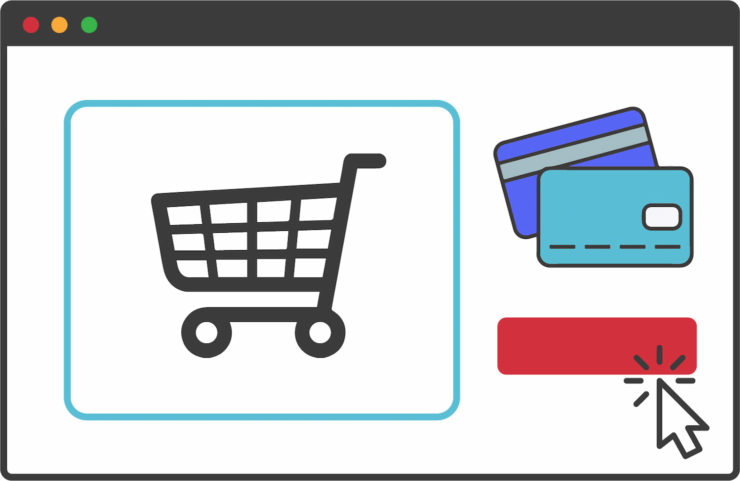
Cost / hosting
WordPress Hosting and Cost
Investing in WordPress means you will have to source your hosting provider, which does mean costs can add up. There are many fast and secure WordPress hosting in Australia. These agencies will do it for you, letting you relax knowing your website is being taken care of.
What are the best WordPress hosting in Australia?
There are many hosting providers across Australia that help you connect your business to your user base. At Web3, we use WP Engine to host our Client’s WordPress Sites. Our plans are hosted in Brisbane, Sydney, and Melbourne for network connectivity throughout Australia.
We ensure that your website hosting is as fast and secure as possible, as we know the importance of providing a reputable brand first hand. Hosting your website close to your customer is essential for the best access. If you have any more website hosting questions, we have the answers.
Other WordPress hosting providers in Australia:
- GoDaddy
- Hostinger
- BlueHost
- Crazy Domains
- SiteGround
How much does it cost to host on WordPress?
The price of hosting providers ranges widely. You can expect to pay between $5-30 a month. It depends on your budget and the needs of your business and its website.
Wix Hosting and Cost
Wix provides free in-house hosting that delivers globally. It ensures everything is provided for you, completely stress-free. It’s perfect for people who have a smaller budget and want to kick-start their business straight away.
Do you have to pay for Wix?
Short answer, No. Wix offers both free and premium plans. These range from $13 to 50 per month for all your business and eCommerce needs. Each of these plans provides free hosting, consistent reliability, and security. You will have one less thing to worry about.
However, the free hosting plan may be costing your business in the long run. Websites built by amateur users may not be getting found, be lacking in functionality, and will overall be costing your business. It is something to be cautious of for using Wix in the long-term.
Summary
At Web3, we are a WordPress development agency and have a conscious bias to the software we use. Why? Because we know that it works best for us and has been successful for our clients over the eight years of hosting for them. Overall, there are clear pros and cons for both Wix and WordPress. These depend on what your business needs are.
Overall, we recommend Wix for beginners to quickly kick start your business with little add ons. However, for upscaling, WordPress is the website software for you.
By the way, we are offering our Web3 WordPress Website Hosting Services starting at $49 per month to help get one less thing off your shoulders and feel confident your website is safe, fast, and secure 24/7.
Listen In
James and Joseph go head to head in the debate of Wix Vs. WordPress. This hilarious episode will unveil the secrets no blog will tell you. Stay tuned to find out what software is better for your business and how to get started earning money in less than 15 minutes.
Transcript
James Banks:
Hello everyone, and welcome to another episode of the Web3 Marketing Debate Show. I’m your co-host, James Banks.
Joseph Chesterton:
And I’m your co-host, Joseph Chesterton.
James Banks:
And today I cannot wait for this debate, WordPress versus Wix. Which one’s better? For this one, I’ll be defending Wix.
Joseph Chesterton:
And I’ll be destroying Wix.
James Banks:
We’ll see about that. Well, without further ado, let’s start the debate. So Joseph, why would you say WordPress is better than Wix for small and medium business?
Joseph Chesterton:
Well, I say it every time, it’s very similar to our debate on Squarespace versus WordPress. WordPress, it’s the most used content management system in the world. About one-third of websites are powered by WordPress, which means people are familiar with it, and they know the platform.
There is a quarter of the amount of people employed by Automattic, the company that makes WordPress, than Wix. The beauty WordPress is it’s open source, meaning that millions of people contribute to make it the better platform to build your website on.
With the power of WordPress, it’s infinitely scalable, which means that whether you have a one-man business or you have a medium or large enterprise, your website will work very well on WordPress. It caters to most use cases. You can build things like static websites, e-commerce websites, forums, and the list goes on.
With Wix, however, it’s very, “This is what you can do. You can customise it a fair bit, but you can’t go outside the bounds of what we say you can and can’t do.”
I think a big thing is if you’re a small or medium business and you have an online store, which I would say most people now do because of COVID, you shouldn’t have to pay extra just to sell on your website. It should be included as part of the free offering that you can get with WordPress.
I know you’re going to come back and say it is included, but the thing is not everyone wants to sell products on their website, which is why plugins were created, so that they can install any sort of functionality, and get the website that they exactly need without having to have bloated mess that Wix provides out the box.
With WordPress, let’s say you use WooCommerce, which is the number one e-commerce platform on WordPress and built by the people that make WordPress, it’s free.
You don’t have to pay any extra.
Yeah, sure, you have to host, but if you were to host a WordPress website and host a Wix website, I’m sure the cost would be relatively the same. Then if you want to host a Wix ecommerce website, then you have to pay extra.
On top of that, when you do become a larger business, you don’t have to pay extra just because you’ve hit the storage capacity or… I have to be really careful because I know you’re going to… You’ll bite me back. What’s the right way to say this?
You don’t reach the limitations of Wix. You can scale infinitely with WordPress.
Although Wix has improved a lot, it was notorious for being atrocious when it comes to code, and because I’m a developer, I know what makes a good website. When you have a website that’s thrown together with a bajillion scripts that are loaded whether you use them or not, then that’s where Wix greatly falls down.
Whereas with WordPress, a Web3 website built on WordPress, you have something built dedicated to your website, to your business’s needs, without any bloat and it can be the best website for your business and return the greatest ROI than what you could with a hack job Wix website.
I’ve pretty much summarised it, but if you want to throw in anything else…
James Banks:
Oh, I’d love to throw my hat in the ring, Joseph. You mentioned the phrase “bloated mess” in your spiel there. Isn’t every single WordPress website ever created a bloated mess in comparison to-
Joseph Chesterton:
That’s why I said that’s why you should have a Web3 WordPress website, because we don’t make bloated websites.
James Banks:
Well, we’ll discuss that in the conclusion. Where do I start? Open source. Yay. Open source, that’s great. Well actually, not really. Not if you don’t know what you’re doing, if you’re not technical, not a developer. Not if you run a web agency or are a small business and you just want a site that works.
Open source means that you have a big massive red target painted on your back for hackers to come along, compromise your site and generally make your life misery and hell.
On top of it, go on the comments of bloated and messy code, my God, the amount of sites, well, WordPress sites on the internet that look more confused than a bowl of alphabet soup and spaghetti with cheese run through it, is pretty much almost every example.
There’s so many of them that are terrible. It’s the reason why WordPress can have a negative rap, is that there’s a lot of bad examples out there of sites that have been poorly coded, poorly secured, get compromised, get destroyed, get hacked, get sensitive data stolen, get password credit cards leaked, and the list goes on and on and on.
When you have a closed source platform such as Wix, where hosting and maintenance and security, platform integrity, coding and updates are taken care of for you. It allows you to just kick back, relax and get on with running your business, not running around in circles, trying to fix your website or throw in a thousand plugins to fix a problem.
You can do this only to realise you’re making the problem worse, having one of your plugins conflicting with the other, destroying your entire website. You never have to deal with that with a closed source platform such as Wix.
But I guess with that said, if we look at it from an SEO point of view, and SEO is a core component of what both of these platforms sell themselves as, why would you say is WordPress better than Wix at SEO?
Joseph Chesterton:
I know you tried to stab at the fact that open source is open source, but because it is open source, there’s literally thousands of people improving the code.
WordPress out of the box is good with SEO. It follows a number of best practises. Yes, there are specific things that can be enhanced with a WordPress plugin, such as the most popular one, Yoast SEO. But the beauty of it is that because WordPress is so flexible, you’re able to use whichever plugins you need.
They are most likely built by thousands of other people that have continuously improved it until it can’t be improved anymore. Yoast SEO has 260 people that are actively working on that single plugin, and there’s five plus million installs of that plugin. It’s no small beast, it’s a large operation that allows you to stay at the forefront of SEO and make sure it changes… You’re rolling your eyes at me. A lot of the thinking is done for you.
James Banks:
No it’s not. You have to figure out which SEO plugin to put in, and then you have to figure out how to optimise the damn thing. Then on top of that, you’ve got to actually know if the right theme you’ve just selected is actually compliant from a search point of view and doesn’t have show stopping issues and bugs that could affect your site and the search performance.
You don’t have to deal with that with Wix. It’s all out the box.
You just need to set your meta titles, descriptions and keyword optimise your site, and off you go. You’re off to the races, although it’s a lot more complicated than that, but you don’t have to deal with any of the runaround.
It’s all there, and you can know that through having a centralised source managed by a centralised source of developers, that all the themes and templates and inside Wix have been created with SEO compliance in mind. You don’t have to worry about trying to make a non-compliant website compliant, because it’s already compliant to begin with.
Joseph Chesterton:
What happens if you want to make a specific change, like putting schema into your website and Wix doesn’t support it? They probably do support schema, but let’s say there’s a specific meta tag that you want to put in that’s specific to your use case. What do you do?
James Banks:
Well, I think if that is how you’re approaching your site, then it sounds like you’re pretty serious about, or you probably would have a dedicated search marketing agency helping you or a dedicated SEO person on your team doing this for you.
If you’re a business that had that sort of capacity, you probably wouldn’t be like a small micro-ish business. You’d probably be a little bit more larger in scale and you probably would need a more serious and robust platform perhaps. Not to say that Wix isn’t a serious and robust platform, but different strokes for different folks, right?
Joseph Chesterton:
Yeah, there’s a lot to SEO and I don’t know whether you could say one is better than the other, because there is a whole lot of things that are external to just the platform, but something that is part of the platform is e-commerce and being able to sell online, so why is Wix the better e-commerce platform?
James Banks:
Well, it’s a combination of all of the above. If you’re going to be selling online, you going to want to make sure your site’s damn secure and all of your customer records, details, are all secure, and you get that, because the platform’s closed, it’s taken care of.
WordPress, again, if you do not know what you’re doing, you’re not properly maintaining and taking care of your site, and you’re selling online, then you have then an even bigger target on your back, as hackers will want to go after you because of the chance of potentially being able to pick up sensitive information that they could use to exploit for monetary purposes.
It’s the safer and secure alternative, and if you’re going to be building a business on e-commerce, then you want to make sure that your site is as safe and secure as possible, because your website is your business.Why would you say WordPress is better than Wix at e-commerce, Joe?
Joseph Chesterton:
I think a big one is scalability. When you are building a business, you’re wanting to scale the business. Being able to choose a platform that allows you to scale a lot bigger than just selling a couple of widgets online.
I was trying to see if there are any big businesses on Wix that are e-commerce, and all I could see was the Hyatt company, but then when I clicked on it and inspected it, I think they’ve moved platforms.
Whereas with WooCommerce, there’s lots of big companies, people like the All Blacks, Singer sewing machines, Weber barbecues and many, many more. There’s hundreds, and obviously there’s tens of thousands of small businesses that rely on WooCommerce and WordPress.
If you want to see the showcase, then all you need to do is Google WooCommerce Showcase and you’ll be able to see there’s hundreds of sites listed there that all use WordPress and WooCommerce to sell online. The biggest thing is scalability, and they both can handle e-commerce just fine. I think when it comes to customising it, you are confined to what Wix can do, whereas with WordPress, because it’s open source, again, you can do whatever your mind can create.
James Banks:
Well, at the end of the day, I think it really depends on where you are at with your business journey. If you’re just getting started or you’re a micro-business or you’ve just started but you’ve got no online presence, then I think Wix is a fine solution. It’s easy and simple.
You don’t need to bring in a developer. You don’t need to bring a web agency in for you to be able to, if you’re willing to spend the time, that is, put together a simple website that simply displays your website, or enables your business to have an online presence.
However, if you’re looking to really scale up and go to the next step, professionalise your online presence, increase market share reach, run sophisticated campaigns, you need advanced feature sets. Even things that, as you mentioned with things and companies that you would consider them to be enterprise level companies, are relying on WordPress and WordPress e-commerce to deliver them.
If you’re looking for that level of scale, then typically your best use of time as a business person or a marketer wouldn’t be trying to cobble together your own website. It makes way more sense from a cost efficiency and results point of view to outsource it to a professional web agency that knows what they’re doing and has the case studies and track record to back it up.
In that case, and this is why, again, we specialise in the WordPress platform, it’s a Swiss Army knife. We can do almost anything with it. All the issues that are commonly plagued with WordPress, such as security vulnerabilities, maintenance issues, breaches, hacks and performance.
All of that stuff can be fixed and removed. In fact, it doesn’t even become a problem as long as the company that is building your site on WordPress knows what they’re doing and has a track record of producing high performance, secure websites, which is exactly what we do here at Web3. You can check out our site, web3.com.au/casestudies to see where we have deployed WordPress sites for all types of businesses, small, large multinational, governments and beyond.
At the end of the day, it boils down to where you’re at with your business journey. If you are interested in upgrading your website and you are wanting to take it to the next level, then feel free to reach out to us, web3.com.au to find out more, but other than that, really not much else I have to say on this one. Anything else you want to add, Joe?
Joseph Chesterton:
Just that it’s case dash studies if you want to get to our case studies page.
James Banks:
Yes. Case dash studies, that’s right, thank you.
Joseph Chesterton:
Put in a redirect so that whether you go to one or the other, it’ll still take you down.
James Banks:
There you go, some homework. Alright everyone, that’s a wrap on another episode of the Web3 Marketing Debate Show.
Hope you enjoyed that one and we’ll be back at you real soon for another one on SEO versus social media marketing. We’ll talk to you again real soon.



